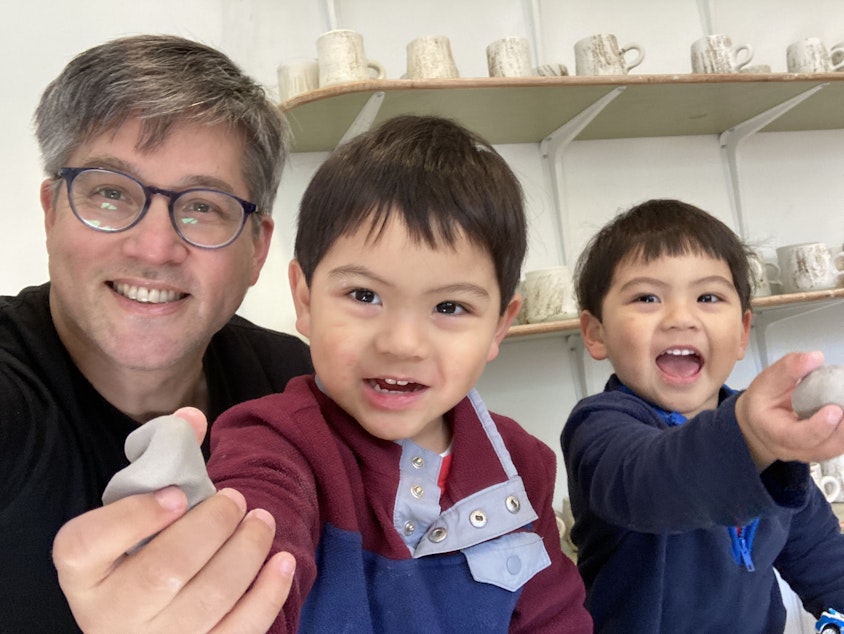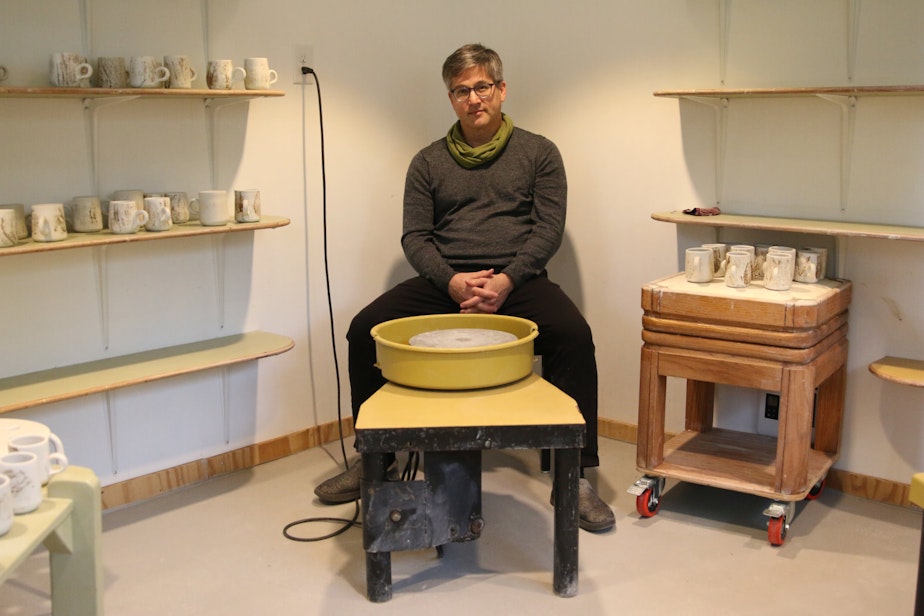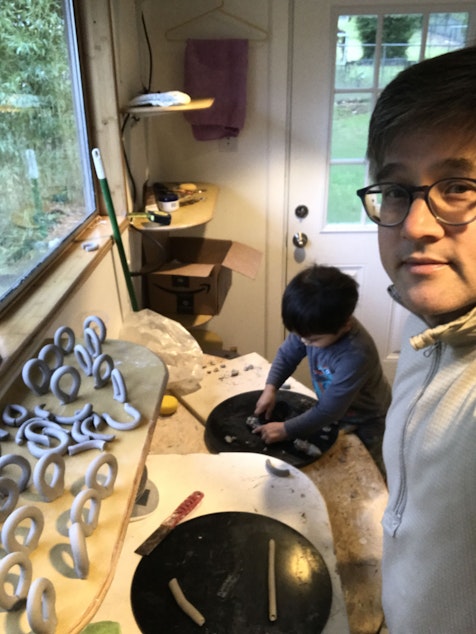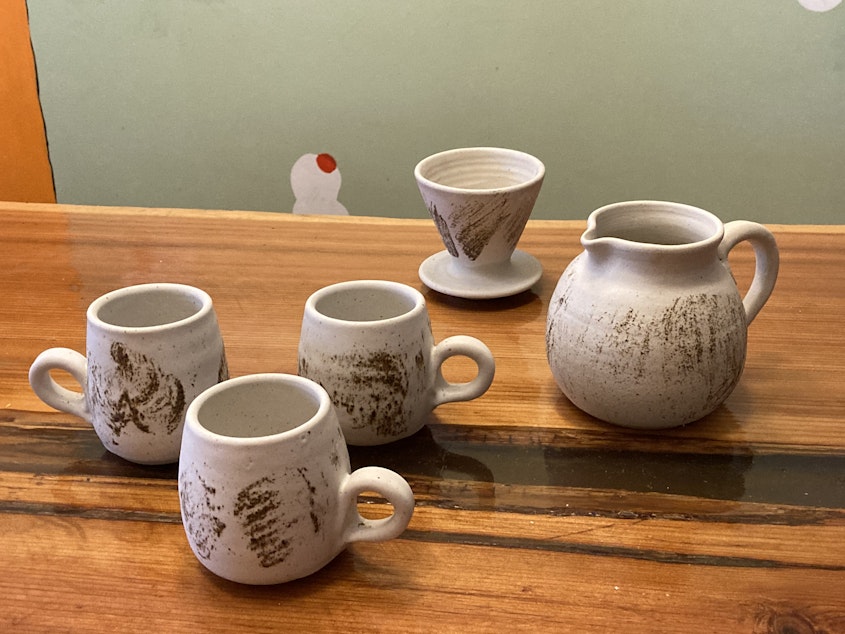Pottery and grandbabies: A pandemic story

Around the beginning of the pandemic, Bryan Ohno closed the Seattle art gallery he’d been running for 17 years. He also radically simplified his life to focus on family and his love of making art.
One year later, he reflects on how it changed him.
D
uring this pandemic, I focused on two things: raising my identical twin grandbabies and making pottery.
At first, doing these two activities didn't jive — it just didn't work. So I had to be really patient. How can I make this work?
The way it eventually worked was when they babies are awake, I attend to them. When they're asleep, I use every opportunity to make pottery.
This is how the day sort of goes now. And it took some trial and error, but it's starting to become a pretty good system. I am just naturally waking up around 5:30 in the morning, and I will just get up, make a cup of coffee and come into the studio, which is adjacent to our house. And usually in the morning, I throw the pots.
I have about two hours; if I'm lucky, three.

The babies wake up anywhere between 7 and 8 in the morning. So I'll usually get a text from my wife, “Babies are up.” And that's the cue for me to kind of stop and go in. Then I'm off to the races feeding the kids, changing their diapers.
These kids are rambunctious. They will do everything if I leave them in the room too long by themselves. They may take their diapers off and pee on the floor. They may do all these things that you walk in and go, "Oh my goodness." And you can't get mad. You just kind of have to take it in and say, "Okay, guys, I appreciate your creativity here. Let's clean it up so we can get on with the day."

In my studio, I actually made a child toddler a table where they can sit and work at. And I'll give them a chunk of clay. I'll just cut it off and give it to them. They play until the clay gets so hard that they can't move it around anymore, because clay after a while starts to harden up. And then I give them another fresh piece.
But they're amazed at the malleability, the plastic nature. There's nothing like it. There's nothing like that in their life right now that has that component. Everything is hard, or everything is soft. It doesn't … move and turn into things.
So we'll be at this table and make a complete mess. And I love it. In fact, it took about a couple months, but I figured out that when they're playing, that's the best time for me to experiment on something new.
There's no judgement, because, you know, play is play and I feel less pressure. "Oh, maybe I'll try this handle. Maybe I'll try that handle." I'll roll it different. I'll pull it different. I'll twist it different. And my mind just thinks... they're actually becoming my, kind of, creative coach. They allow me to be freer.
During this pandemic, I know that there's been an incredible amount of hurt and anxiety, and a sense of feeling lost. I hear that from friends, artists a lot. And that hasn't been the case for me. It's been actually a time to really restart, refresh.
Because everything is about living life in a daily cycle that is, more or less, a little more in tune with nature, the people around you. And pottery and grandbabies for me has enabled me to be more aware of the precious moments that are out there, not to be missed.

This story is part of our series Voices of the Pandemic. The series features first-person, personal stories related to the time of Covid-19. Bryan Ohno's story includes sounds from his home he recorded on his phone. Hear more stories from our Voices of the Pandemic series at KUOW.org/Voices.
This story featured music by Analog Heart, licensed via MusicBed. The Voices of the Pandemic theme song is by Alec Cowan.




